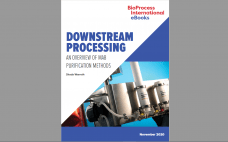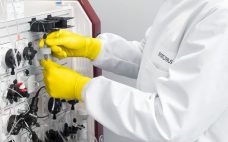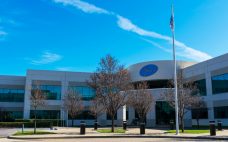The downstream harvest, clarification, and purification operations of biologics are essential steps to ensure drug product safety. However, these process steps can be problematic for complex biologics. Compared with processes for traditional small-molecule pharmaceuticals, downstream methods for monoclonal antibodies (MAbs) have higher risks of contamination. Thus, different centrifugation, filtration, chromatography technology and viral clearance/inactivation strategies must be applied to remove dead cells, host-cell proteins, viruses, and other contaminants. Several factors must be considered to determine which methods and technologies are…
Friday, November 20, 2020 Daily Archives
Best Practices for Ensuring High Virus Clearance When Using Anion Exchange Membrane Adsorbers
This webcast features: Sherri Dolan, Global Technology Consultant, Separations Marketing Group, Sartorius Stedim Biotech The risk of viral contamination is a concern for all biopharmaceuticals and vaccines derived from cell lines and can have serious implications. Contamination events can cost millions of dollars in investigation, clean-up, corrective action, and manufacturing plant downtime. Most importantly, such events pose a safety risk to the patient. To ensure the safety of biological products, regulatory agencies require manufacturing processes to have a validated current…
Pfizer looks to freezer farms and thermal shippers to make COVID vaccine distribution ‘doable’
Pfizer says it is prepped to overcome the logistical challenges of distributing its mRNA vaccine against COVID-19 as it submits an Emergency Use Authorization (EUA) to the US FDA. Today, Pfizer submitted a request to the US Food and Drug Administration (FDA) for Emergency Use Authorization (EUA) of BNT162b2, an mRNA vaccine candidate codeveloped with Germany’s BioNTech, against SARS-CoV-2. The news follows Phase III trial data showing the vaccine has an efficacy rate of 95% and marks a major milestone…
Iovance plant on track for 2022 and lifileucel BLA set for next year
Iovance Biotherapeutics says its new cell therapy plant in Philadelphia is on track to begin commercial production in 2022. The firm updated on development of the facility at the Navy Yard complex in Philadelphia during its Q3 earnings call, telling analysts clean rooms are due to be operational for clinical trial supply production in 2021. Iovance announced plans for the $125 million Philadelphia facility in May last year, explaining it would be used to make autologous TIL products including lifileucel…




